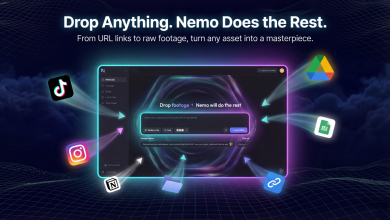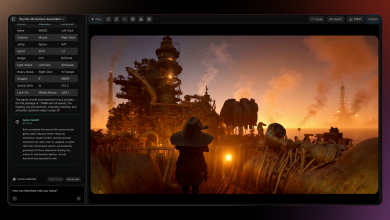
The world of events is changing fast. What used to rely on intuition, checklists, and long nights of manual coordination is now increasingly powered by algorithms that learn, predict, and adapt. From guest registration to lighting design, artificial intelligence (AI) has quietly taken a seat behind the curtain, not to replace human creativity, but to amplify it.
Today, AI’s influence on the events industry goes far beyond flashy chatbots or digital name tags. It’s reshaping how planners design experiences, optimise logistics, and even understand emotion in real time. In short, AI has become the invisible stage manager, ensuring that every cue, every crowd, and every moment runs seamlessly.
Smarter planning before the first guest arrives
In the pre-event phase, AI is now a planner’s most efficient assistant. Tools driven by predictive analytics can model attendance, forecast spending, and calculate resource needs weeks before the first seat is set.
Event software like Bizzabo and Cvent, for instance, use AI to recommend venues, predict registration trends, and identify at-risk tasks that could cause delays. This kind of insight helps organisers allocate staff, design more efficient layouts, and cut costs on underused resources.
It’s not just about efficiency, it’s about insight. By analysing historic data, AI can tell organisers which types of sessions attract the most engagement, what time of day audiences are most attentive, and how to schedule keynote speakers for maximum impact.
For the luxury events segment, where precision and personalisation define success, this level of foresight is invaluable. It allows planners to focus on creativity rather than crisis management.
AI on site: real-time coordination and crowd intelligence
Once the curtain rises, AI quietly takes on an even more critical role. Real-time data from cameras, sensors, and RFID badges feed into dashboards that track everything from queue times to crowd density.
Facial recognition and sentiment analysis — used responsibly and with consent — can provide event teams with a live read on audience satisfaction. If enthusiasm drops in one zone, lighting, music, or pacing can be adjusted instantly.
AI-driven translation tools also make global events more inclusive. Guests can listen to live translations in their native languages or receive real-time subtitles on their devices, opening doors for more diverse participation.
Even in catering and logistics, AI is reducing waste by predicting consumption patterns, while robotics teams are testing autonomous baristas and service assistants for large-scale conferences and exhibitions.
Designing more personalised guest experiences
The events industry has always been about people — and AI is making that human connection stronger by helping planners anticipate needs.
Recommendation engines can now personalise event agendas for each attendee, suggesting sessions, workshops, or networking matches based on professional interests. Some conferences already offer “intelligent networking” apps that pair guests with similar goals or complementary skill sets.
Luxury event organisers use similar technology to create tailored experiences — adjusting lighting, scent, or playlist based on guest profiles and past preferences. It’s a level of personalisation that was once impossible to scale.
Education in this area is evolving too. As leading hospitality schools incorporate event-tech and AI into their curricula, the next generation of professionals is being trained to blend creativity with data-driven insight. Institutions such as Les Roches now explore how AI, digital strategy, and experiential design intersect in modern event management — preparing graduates to lead in an increasingly intelligent industry.
Behind the scenes: data ethics and human balance
As AI takes on more backstage responsibilities, the industry faces new ethical questions. How much guest data is too much? Who owns the insights generated by an event platform? And how do we ensure automation doesn’t erode the personal touch that makes hospitality unique?
Many leading organisers are adopting “ethical AI” frameworks to safeguard privacy and transparency. Attendees are being informed about how data is collected and used, and anonymised analytics are replacing invasive tracking.
At the same time, successful event professionals recognise that AI should never overshadow empathy. The best planners still walk the floor, sense the mood, and make human decisions. The technology is there to support them — not substitute for them.
Sustainability through smarter systems
Sustainability is another area where AI is proving indispensable. Event waste — from catering to printed materials — has long been a challenge. Machine-learning models can now predict attendance drops or surges, helping planners order the right quantities of food and materials.
Energy-optimisation tools adjust temperature, lighting, and sound systems dynamically, cutting power consumption without compromising ambience. These incremental efficiencies, multiplied across thousands of events, translate to significant environmental benefits.
For large-scale conferences, AI-powered transport coordination reduces carbon footprints by optimising shuttle routes and promoting car-pooling. It’s a reminder that technology, when used thoughtfully, can make hospitality more sustainable as well as more seamless.
A glimpse into the next act
So what comes next for AI in events? Expect generative tools to play a bigger creative role — from automatically designing event concepts to simulating layouts in 3D virtual spaces before a single prop is built. Voice-activated assistants will increasingly support on-site teams, handling last-minute guest requests and delivering instant updates.
Meanwhile, AI will continue to blur the line between physical and digital experiences. Hybrid events — once a pandemic workaround — are now design frontiers, where live and virtual audiences coexist seamlessly. The success of these events will depend not on the novelty of technology, but on how naturally it integrates into the guest journey.
The human spotlight remains
For all its intelligence, AI cannot replicate the instinct, warmth, and improvisation that define great hospitality. The events industry has always thrived on emotion — the gasp when lights dim, the laughter at a shared table, the sense of belonging that lingers long after the curtain closes.
AI may set the stage and handle the cues, but it’s people who deliver the performance. The future of events will belong to professionals who understand both — who can use algorithms to craft experiences that still feel deeply, unmistakably human.




